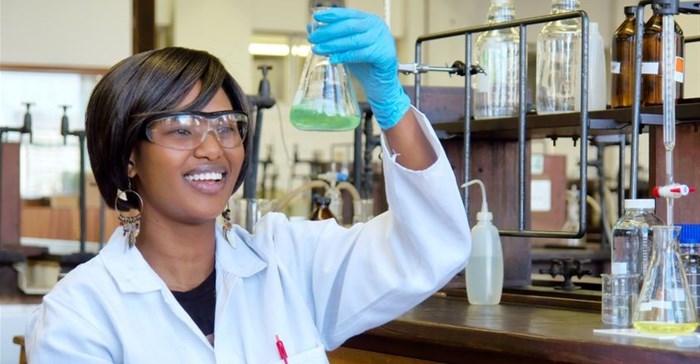
Top stories





ESG & Sustainability#AGES2026: How to back Africa's next-gen green and blue entrepreneurs
Maroefah Smith 12 hours

More news
















Logistics & Transport
#Budget2026: Road freight logistics and what it means for consumers


This method of monitoring and detecting diabetes is painful for the patient and could potentially introduce infections.
The Council for Scientific and Industrial Research (CSIR) has developed a diabetes-detecting chip to monitor blood sugar levels by analysing breath.
The technology aims to supplement, and eventually replace, finger prick glucometers for monitoring diabetes in patients, and was among some of the technologies which female researchers are helping to develop.
“The new solution is non-invasive and hence alleviates pain, as well as opportunistic infections. Many diabetes sufferers would prefer to monitor their sugar levels in a pain-free manner. The new technology is a direct response to these challenges which our citizens face daily. The breath analyser is based on a micro-nano chip composed of nanostructures,” Valentine Saasa, says.
The CSIR is also working on the safety and development of skin care products. South Africa is facing a crisis with illegal products that damage consumers’ skin.
Product development technician Vivey Phasha urged consumers to be aware of the ingredients that go into their cosmetic products to ensure the safety and protection of their skin.
“Each cosmetic product must have an ingredient list at the back panel, which then gives information on what has been added to the product. With this information, a consumer will be able to know what goes into their product,” she said.
Senior researcher Ghaneshree Moonsamy shared her research on the development of probiotics for use in the production of broiler chickens, dusky-cob and abalone.
The research will assist the country in the production of natural animal products, free of antibiotics, chemicals and growth stimulants.
Moonsamy said South Africa’s imperatives are still focused on affordable food production, industry and job creation.
“Consumers are demanding naturally produced animal products, free of antibiotics, chemicals and growth stimulants. A key opportunity lies in developing probiotics for the production of both commodity and specialty foods.
“Unique locally sourced probiotics offer an alternative biological strategy to improve farm productivity by improving digestibility and feed conversion, achieving a higher growth rate, attenuation of disease and improving vigour,” she said.
Dr Janine Scholefield, a senior researcher in synthetic biology, gave a status update on stem cell research.
She is using induced pluripotent stem cells (iPSC) models to study health issues relevant to Africa, such as those caused by HIV, by looking at people with different susceptibility to the virus, including elite controllers.
Through her research, Scholefield is also making genetically engineered liver cells with the aim of designing drugs suited to the African population.
Currently, there is an increase in patients on the continent reacting to drugs that their metabolisms are rejecting, which work well for their American and European counterparts.
“Research that focuses on creating stem cells, one African mutation at a time, is important, as a model that works in another continent may not work in Africa,” said Scholefield.
Through her research, she hopes to develop drugs that specifically work for African the metabolism
SAnews.gov.za is a South African government news service, published by the Government Communication and Information System (GCIS). SAnews.gov.za (formerly BuaNews) was established to provide quick and easy access to articles and feature stories aimed at keeping the public informed about the implementation of government mandates.
Go to: http://www.sanews.gov.za